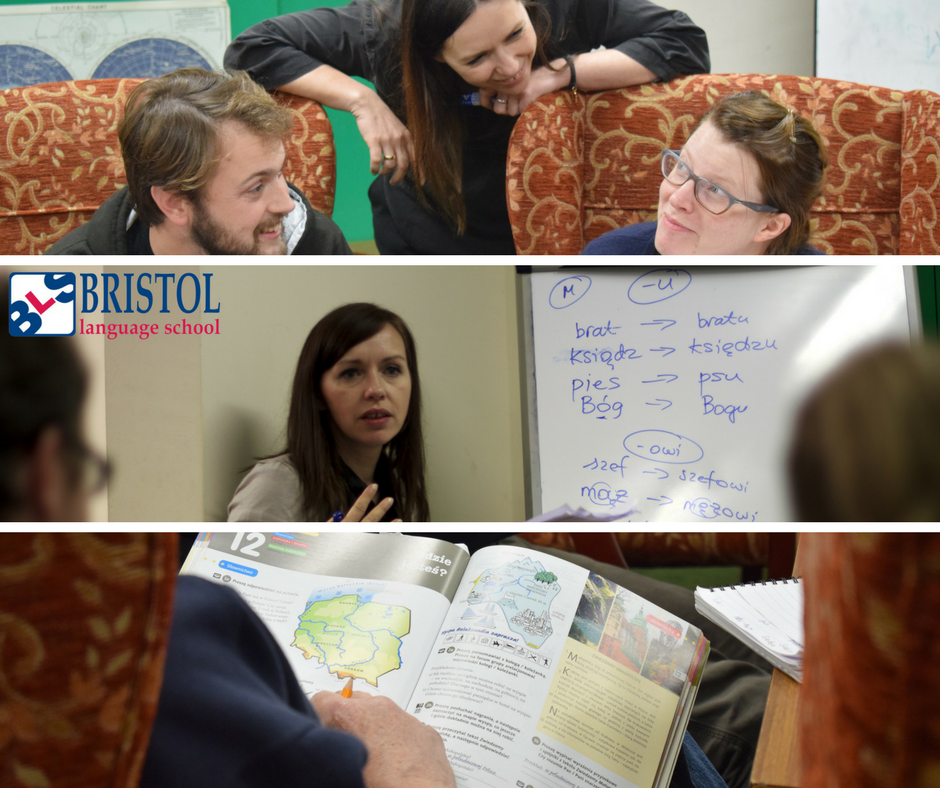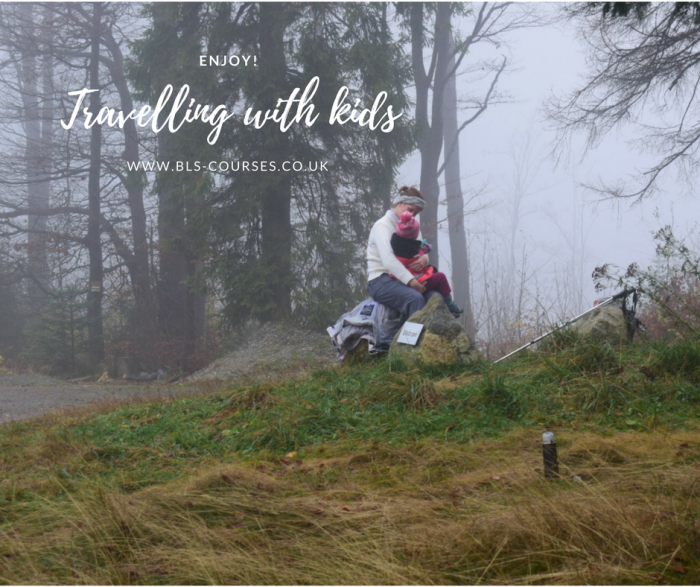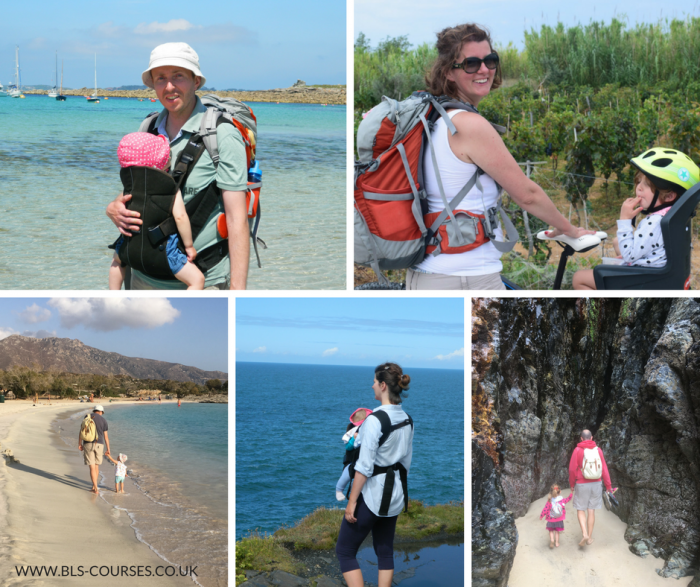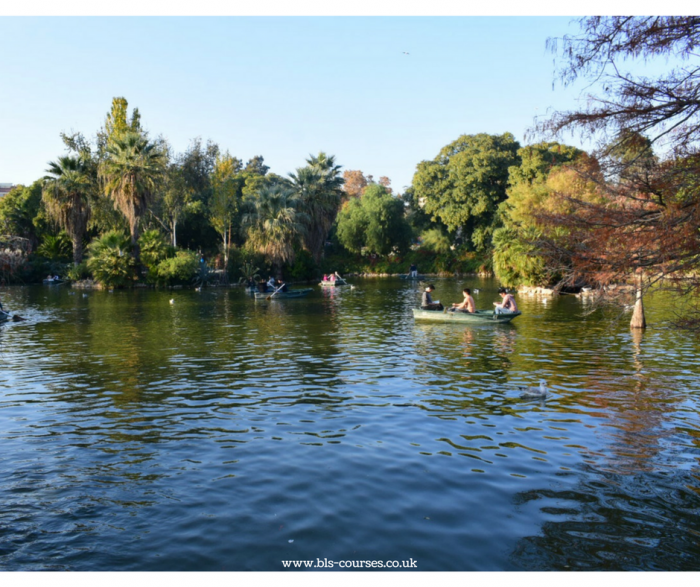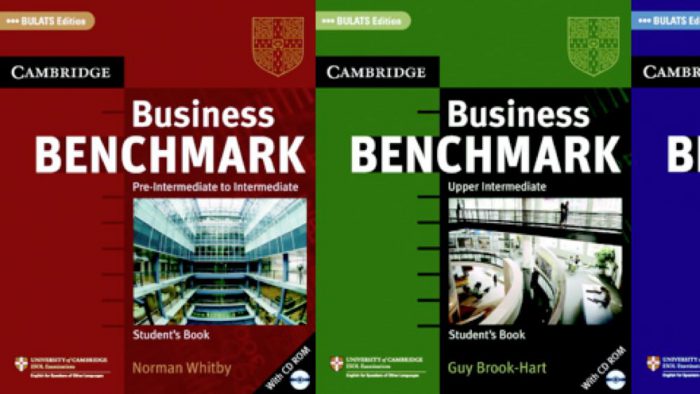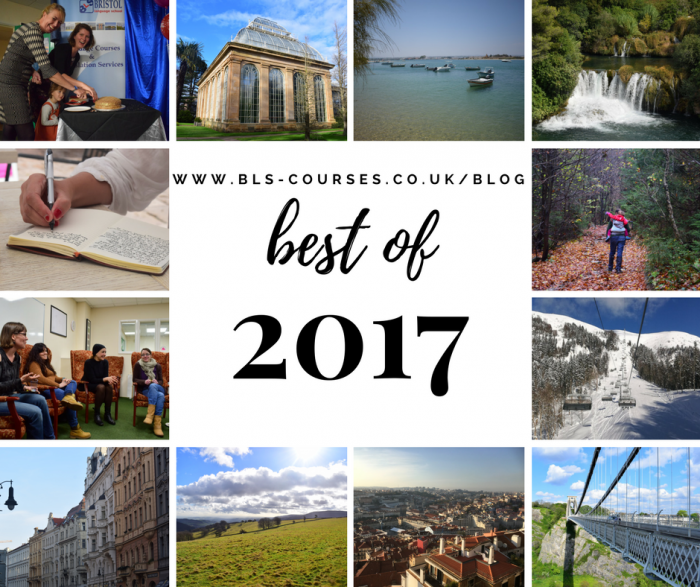Agnieszka teaches Polish at BLS. She is also a Polish-English interpreter, working in various settings: the police, the courts, hospitals, etc. We caught up with her after a long day in the field to ask her what a typical day looks like for her.
Please tell us a bit about yourself
I am Polish, I have been in the UK for almost 7 years and I am a mum of 2 boys. I have a BA and MA in Sociology/Social Sciences, an English College Diploma in Translation and Interpreting, and a Postgraduate Diploma in Training and Teaching.
How long have you been a translator/interpreter?
I qualified in 2009 and have worked since then, first translating online and then moving on to interpreting.
What type of translation/interpreting do you do? What types of situations do you interpret in?
At the moment, I do mainly court work, where I assist a non-English speaking person throughout the court process. Other places include prisons, police stations, probation, social service meetings, hospitals, etc.
Do you work full time as an interpreter or do you combine it with another job?
There is no such thing as “full time” – sometimes you work 60 hours a week, and sometimes you have a few days off….
Do you have to travel to do your job? What’s the furthest you have had to go?
Yes, I travel to all the courts in South-West England and South Wales. The longest time I had to commute was about 3 hours one-way.
Do you always interpret face-to-face or have you done telephone interpreting too?
I have done telephone interpreting too. But face to face interpreting is much more my cup of tea as I believe a message is conveyed better when you can see somebody’s facial expressions, other body language, and you can hear tone of a voice clearer than on the phone.
How to you keep up-to-date with the fields you are interpreting for and the language related to them?
That is absolutely crucial. I learn every day and update my vocabulary range constantly. This is actually one of the perks of the job – you never stop learning.
Please can you describe a typical day when you have an interpreting assignment?
I normally prepare for my working day the day before – I need to make sure I know where I am going and what is expected of me. I print out the documents and read any additional documentation. If it is a hospital appointment I try and refresh the specific vocabulary I might need to use. To check location, I use Google Maps to make sure I know what the building I am going to looks like, to make it easier to find. I check the time of commute and plan my travel accordingly. I buy tickets online if I have to catch a train. In the city, I cycle everywhere so I am independent of traffic, which is amazing in a busy city like Bristol.
Where did you learn to be an interpreter? How did you get into translation/interpreting?
Having obtained my qualifications in English, I went on to study interpreting and translation. It was a 1-year course which involved lots of practical classes where you train your brain to think quickly, to store long utterances, to remember many details at the same time, etc. We were also taught some specific techniques for note-taking, common symbols, etc. I had to pass 4 exams in translating and interpreting both ways (Polish into English and vice versa).
Online translation offers great flexibility – that tempted me in the first place. I worked as a manager of a busy educational institution but when I got pregnant I knew I would have to slow down. Translation allowed me to work around my child’s routine; I could stay at home with my son while earning and being professionally active.
What do you like best about being an interpreter/translator?
At the moment, with court work, I mostly enjoy knowing that I can help a fellow citizen in difficulty. Interpreting sometimes borders on support work where you are somebody’s first point of reference in a stressful situation. The job also offers flexibility.
What is your least favourite thing about your job as an interpreter?
Defendants you are supposed to support changing their plea in the first half an hour of a 5-day trial you were booked on. Your whole week gets cancelled and you have to make sure you get other projects quickly to ensure you actually work!
What is your favourite thing to translate?
Scientific publications on subjects related to psychology, sociology, childhood studies, etc. Being personally interested in a subject definitely helps when translating.
Do you have any tips for anyone who is considering a career in translation/interpreting?
Make sure you work with more than one agency to build your calendar – you are technically self-employed and you are responsible for ensuring you have enough work.
Don’t get frustrated when things don’t go as planned – there are a lot of cancellations or, on the other hand, last minute bookings when you are on your day off. Be prepared for that and just accept it as part of your work dynamic. If you get stressed by every cancellation or change, you will not enjoy your professional life.
If you struggle with a specific term, be it in hospital or in court – simply ask for clarification. We are only human, and it is not possible to know everything about everything! It is much better to admit that we are not familiar with a term and get an explanation than to translate incorrectly!
If you are more interested in written translation, become part of translation boards like ProZ and invest your time in building your profile there – this will result in more job offers. Always be realistic about the amount of work you can do in specific time-scales – bad quality translation might lead to negative comments on your profile and long-term loss of income. Make sure your work is proofread if you translate into a foreign language – you might feel the text is perfect, but a native speaker can always “polish it”, making it feel as if it was originally written in the target language.
Invest in good software – it will speed up your work, correct your mistakes, remember all previous projects and so on. Also, get some training in how to use said software – there is no point in spending hundreds of pounds on a programme that you don’t fully exploit.
How do you relax when you are not working as an interpreter?
I teach Polish! 🙂 And spend time with my family and friends.
What are your ambitions for the future?
To be happy 🙂 And for my boys to be good people 🙂
Thank you!
Agnieszka Teixera-Vaz was interviewed by her student, Suzannah Young
